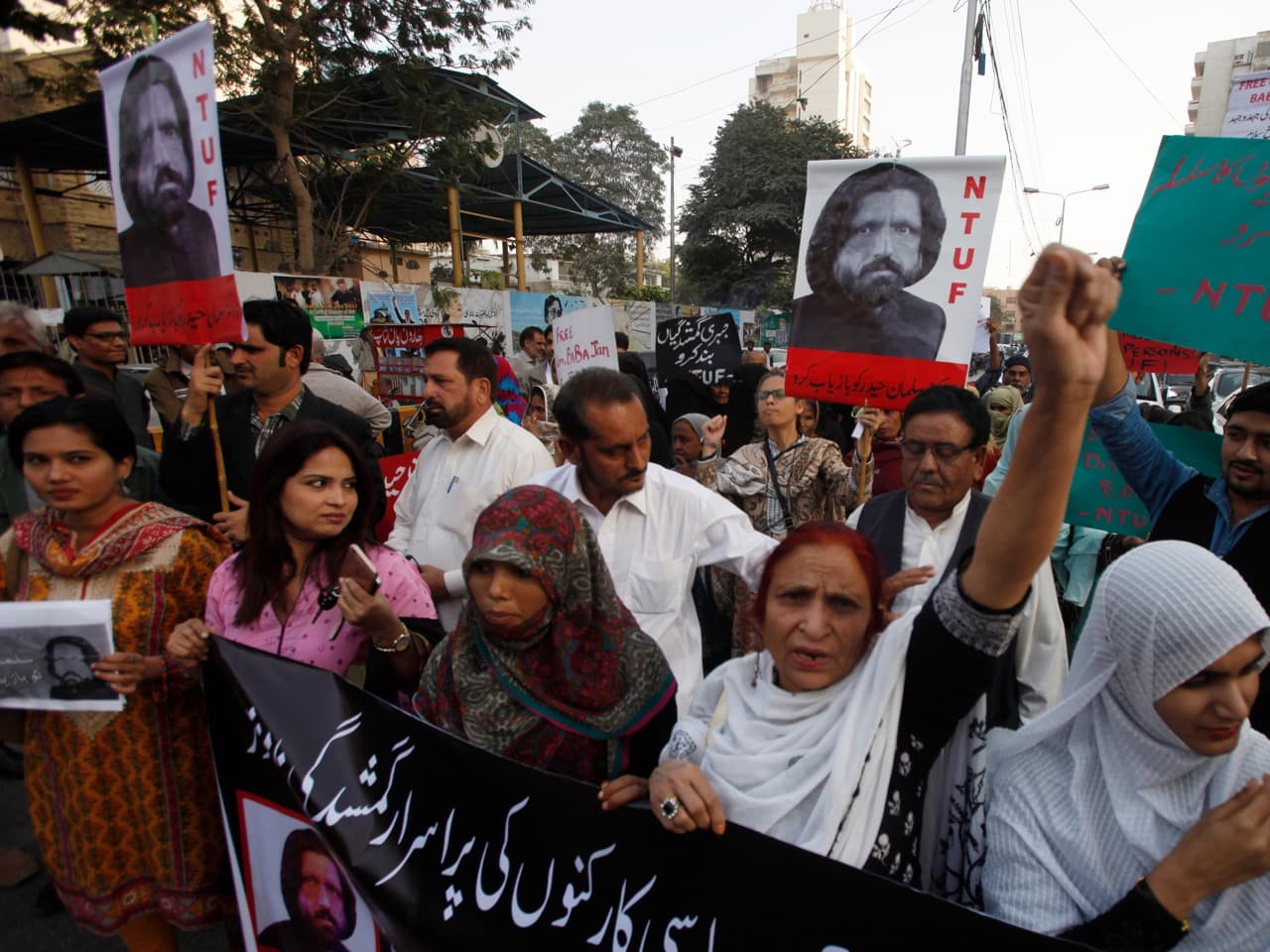In January: "Disappeared" bloggers, activist in Pakistan; LGBT community rights threatened in Indonesia; new independent outlets in Hong Kong; activists see no justice in Cambodia.
The disappearance of four bloggers and an activist in Pakistan in early January 2017 drew international attention. The five men, poet and academic Salman Haider, bloggers Waqas Goraya, Asim Saeed, Ahmad Raza Naseer and activist Samar Abbas, went missing between 4 and 7 January 2017 from different cities in the country. They are well-known for their critical views on militant religious groups as well as the military establishment that were disseminated online, according to the Pakistan Press Foundation.
In a statement, Human Rights Watch said it was critical of the “near simultaneous disappearance and the government’s shutting down of their websites and blogs as it raises questions about government involvement.” Digital rights organisation Bytes for All said activists, journalists and civil society members are routinely censored, intimidated, surveilled and attacked in the past, resulting in the shrinking spaces for peaceful expression, debate, protest and exercise of civil liberties.
Activists like Digital Rights Foundation’s Nighat Dad were quick to raise the alarm over the disappearances:
A dark new chapter against civil society appears to have been opened with disappearance of 4 bloggers and activists #RecoverAllActivists pic.twitter.com/CDCNDntcMh
— Nighat Dad (@nighatdad) January 10, 2017
Journalist and editor Beena Sarwar joined the chorus of those expressing their concern:
Stop media trial #Pakistan #RecoverSalmanHaider #RecoverAllActivists #Missing #socialmedia #activists #ruleOfLaw #dueprocess https://t.co/VrKconTH0R
— beena sarwar (@beenasarwar) January 24, 2017
Responding to the cases of disappearances, UN Special Rapporteur on the right to freedom of expression, David Kaye, issued a statement on 11 January calling on the government to make it their priority to ensure the return and safety of the bloggers and activists.
Freelance journalist Rabia Mehmood writes that secular voices have been demonised in the country and the responses by pro-state and conservative religious groups have been to file blasphemy charges against the bloggers. On social media, these users have blatantly called for physical attacks on the disappeared individuals. Media reports on 28 January say four have returned but no details were available. Two of them have left the country, fearing for their safety. Unfortunately, the Federal Investigation Agency seems to have succumbed to pressure and has ordered investigations against the five for blasphemy.
No end to injustice:Released from detention,#Pakistan bloggers booked for blasphemy on #socialmedia RIP #freespeech https://t.co/inF7ftEdsl https://t.co/Rm7rlGdjs9
— Raza Ahmad Rumi (@Razarumi) February 1, 2017
Minority rights
In Indonesia, threats continued against the Lesbian, Gay, Bisexual Transgender, Queer and Intersex (LGBTQI) community as 600 participants and organisers of an event were briefly detained in South Sulawesi. Human Rights Watch criticised the police for helping militant Islamists, particularly the Islamic Congregation Forum, in targeting and silencing the LGBT communities in the country.
Media reports said the authorities banned a sports and cultural event involving the waria (transgendered people) and bissu (a gender-neutral identity under the local Bugis tradition) following complaints that the event was un-Islamic.
A non-governmental organisation, Arus Pelangi (Rainbow Flow), said the event was held to commemorate the traditions and cultures of the local communities, and condemned the cancellation as harassment and unconstitutional. Islamic fundamental groups have been stepping up their attacks of minorities. In Jawa, Jakarta governor Basuki “Ahok” Tjahaja Purnama, a Christian, is facing blasphemy charges, incited by the Islamic Defence Front over a reference to the Quranic verse he made in September 2016.
New platform promotes public participation and accountability
In Hong Kong, veteran journalists have come together to set up an independent media platform to promote press freedom. Citizen News was established on 1 January to provide independent, accurate and fair news to its readers, in an environment where press freedom faces mounting challenges.
The editors and journalists, who previously worked with mainstream news organisations like Ming Pao, South China Morning Post and the successful online platform Apple Daily, say they are hoping to promote public participation in journalism and ensure that news should serve and be accountable to the public. One of its founders is Kevin Lau, whose sacking from Ming Pao in 2014 was controversial and who survived an attack by unknown assailants. The Committee to Protect Journalists reports that the online platforms like Citizen News are attempting to counter the increasing Chinese control of the media.
Calls to overturn convictions of land rights activists
In Cambodia, activists continue to fight what they see as a crackdown on civil society groups that take up public interest issues. The Cambodian Center for Human Rights and 47 other non-governmental organisations issued a joint release on 29 January, calling on the Court of Appeal to overturn the wrongful conviction of activists from the organisation, Mother Nature.
The three – San Mala, Try Sovikea and Sim Somnang – were arrested in August 2015 when they supported the local community in Andoung Teuk to protest ongoing sand dredging, which was harming their livelihood and the environment. All three were sentenced to 18 months in jail and ordered to pay about USD25,000 to the dredging company, Direct Access. As they had spent 10 months in detention prior to the conviction, they received a suspended sentence.
According to media reports, the three fled the country ahead of the Court of Appeal hearing on 31 January. Activists and human rights defenders in Cambodia have come under serious threat from the government and non-state actors, a concern expressed by UN Special Rapporteur on the freedom of assembly, Maina Kiai.
Among those affected are land rights activist Tep Vanny, who has been imprisoned several times for her campaigns since 2012, including for her support for the five human rights defenders in jail. She is again facing charges reportedly for “inciting violence” during a protest dating back to 2013.



